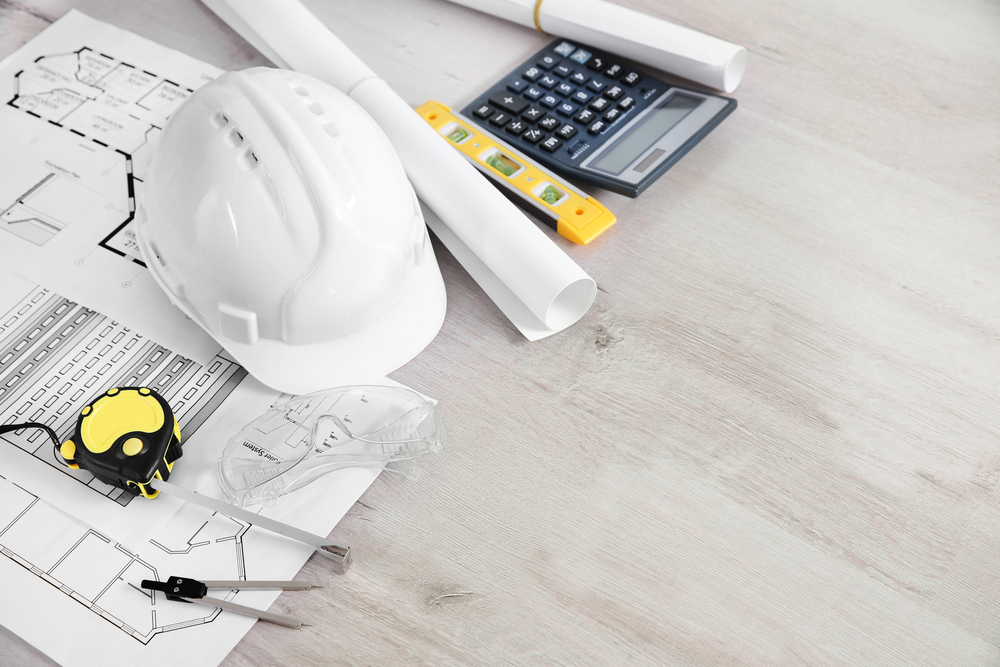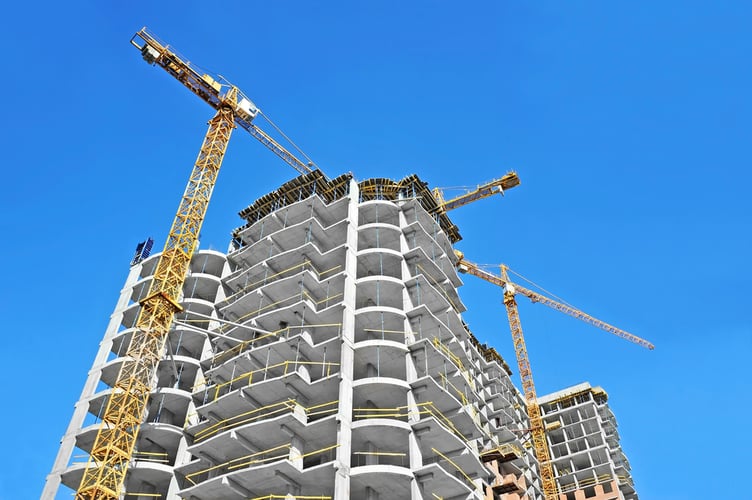What does a Building Contractor do? Role & Responsibilities

In any construction project there are three main parties involved: the owner or client, the management team, and the contractor. The building contractor plans and coordinates construction activities, and must complete the project within the established time and budget. Contractors are responsible for the entire construction process, and must determine the best methods to finish the project as specified.
General Roles & Responsibilities of a Building Contractor
In general terms, a contractor is responsible for planning, leading, executing, supervising and inspecting a building construction project. The responsibility extends from the beginning to the end of the project, regardless of its scope.
Contractors accomplish their duties by planning activities, supervising workers, and ensuring the project follows local codes and laws. A contractor may hire subcontractors for specialized areas, such as electrical installations and HVAC systems.
Manage your contractors effectively and complete your projects on time and on budget.
Specific Roles and Duties of a Building Contractor
As mentioned before, a building contractor has multiple responsibilities, which may vary depending on the contract. There are many roles a contractor can assume during different stages of a project, and this section covers the most common ones.
Project Planning
Every project has a master schedule that describes all activities, along with their time distribution and planned budget. This schedule has a completion date that contractors must meet, and hefty penalties normally apply for missing the deadline. A late completion can only be justified if the project was delayed by external factors beyond the contractor’s control, such as extreme weather.
The first duty of a building contractor is creating a project plan to deliver it on time. Some responsibilities include:
- Planning all crucial project development and implementation details.
- Determining the construction equipment and material requirements, and planning their procurement.
- Predicting possible changes and creating risk mitigation strategies.
- Meeting any legal and regulatory issues.
- Establishing effective communication among all project participants.
The building contractor must establish a budget for the construction project, and follow it as closely as possible. The budget is a useful tool to track project costs, since contractors can detect waste by comparing their actual expenses with the planned budget.

Project Management
The contractor needs to complete the project on time, and this involves many construction management activities:
- Ensuring funds are available to keep the project moving
- Purchasing materials with enough anticipation for them to reach the site when needed
- Purchasing or renting the construction equipment required for the project
- Interviewing and hiring subcontractors to complete specialized work
- Creating progress reports to justify intermediate payments
Building contractors are also responsible for their personnel, making sure their staff has the right size and technical skills. Contractors also manage payroll for their own employees, and subcontractor payments.
Project Tracking
Project tracking is fundamental to complete the work according to contract specifications and schedules. In addition to tracking progress, contractors must prevent disruption. This involves several complementary activities:
- Quality control
- Using cost-effective construction methods
- Ensuring a constant supply of materials, and scheduling purchases well in advance
- Construction site safety
During the construction process, the building contractor is responsible for tracking progress and managing any necessary changes. Of course, contractors must always have the project scope, time and budget in mind when making decisions.
Legal and Regulatory Issues
Contractors have a handful of responsibilities in terms of legal and regulatory issues. They must acquire all the necessary permits and licenses before starting the project, while covering any fees and taxes that apply. Also, the entire construction process must follow local legislation and building codes.
Being unaware of legal requirements is not a valid excuse in construction projects, which means that contractors must have updated knowledge. With the right construction permits and contractor licenses, the project can progress without disruption.
Health and Safety Issues
The contractor must guarantee health and safety in the construction site, by implementing adequate procedures and raising awareness among workers. The contractor is also responsible for the proper operation of equipment and preventing any accidents from misuse.
The contractor deals with any emergencies and unforeseen issues at the project site, and must report them to the client’s supervision staff.
Conclusion
Building contractors have many roles during the different stages of construction, and each role comes with different responsibilities. Contractors should be capable of managing uncertainty and taking decisions on a daily basis. The track record of a contractor is also very important, since those with ample experience can respond better to common issues in projects.
Nearby EngineersNew York Engineers has a MEP design track record of 1,000+ projects. Contact us via email (info@ny-engineers.com) or phone (786) 788-0295212-575-5300, and make sure your building systems meet codes.
FAQs
A contractor is a professional or company hired to undertake specific tasks or projects, often in the construction industry. They manage the entire process, from planning to execution, ensuring that the work meets the required standards and regulations.
A building contractor oversees construction projects, coordinating between different trades, managing timelines, budgets, and ensuring compliance with building codes and safety regulations.They are responsible for delivering the completed project on time and within budget.
A general contractor manages the overall construction project, coordinating all aspects including hiring subcontractors, while a subcontractor specializes in a specific trade or task within the project, such as electrical work or plumbing.
Consider the following points when choosing a contractor company:
- Fees: Compare fees and ensure transparency.
- Compliance: Verify that they are fully compliant with all relevant regulations (e.g., IR35).
- Services: Evaluate the services they offer (e.g., payroll, benefits, expense management).
- Reputation: Check online reviews and testimonials.
- Customer Support: Assess the quality of their customer service and responsiveness.
- Insurance: Ensure they have adequate insurance coverage.
- Industry Experience: Choose a company with experience in your industry or sector.
- Financial Stability: Consider the financial stability of the company.

Michael Tobias
Michael Tobias, the Founding Principal of NY Engineers, currently leads a team of 50+ MEP/FP engineers and has led over 1,000 projects in the US
Related Posts
Join 15,000+ Fellow Architects and Contractors
Get expert engineering tips straight to your inbox. Subscribe to the NY Engineers Blog below.



